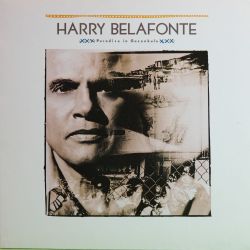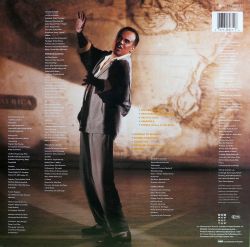Musicians in total:
Alex Acuña (percussion), Bobby Allende (vocals), Jose Alves (guitar), Francis
Bonny (trumpet), Sharon Brooks (vocals), John Cartwright (vocals),
Neil Clarke (percussion), Alistair Coakely (guitar), Richard Cummings (keyboards),
Christopher Dlathu (bass guitar), "Stompie" Themba Dlzmini (guitar), Brenda Fassie (vocals), Ricky Ford (tenor sax), Morris Goldberg (saxophone),
Dick Griffin (trombone), Jake Holmes (vocals), Ralph Irizarry (vocals), Selina Khoza (vocals), Bakithi Kumalo (bass guitar), Vusi Khumalo (drums, vocals), Denny Laloutte (bass guitar), Lemmy "Special" Mabaso,
(saxophone), Jean Madubane (vocals), Marks Makwane (guitar), Debbie Malone (vocals), Richie Marrero (keyboards, vocals), Ronnie Martin (vocals), David Masondo (vocals),
Laurence Matshiza (guitar, vocals), Babakar Meaye (percussion),
Thembile Michael Masoka (bass guitar), V. Mkhize (guitar), Mduduzi Mlangeni (keyboards),
Maxwell "China" Mngadi
(guitar), Joseph Mokwela (bass guitar), Lucky Monoma (drums),
Sicelo Ndlela (bass guitar), Youssou Ndour (percussion),
José
Neto (guitar), Grace Ngobeni (vocals), Jane Ngobeni (vocals), Oben Ngobeni (guitar), Dumisane Ngubeni (keyboards), Moses "Crocodile" Ngwenya
(keyboards), West Nkosi (pennywhistles), Marilyn Nokwe (vocals), Tu Nokwe (vocals), Bongani
Nxele (drums), Victor Paz (trumpet), Hilton Rosenthal (keyboards, guitar), Chi Sharpe (percussion), Deborah Sharpe (vocals), Ty Stevens (vocals), Assane
Thiam (percussion), Carlos Ward (alto sax), Jennifer Warnes (vocals), Wilmer Wise (trumpet) |
In 1988,
Harry Belafonte turned 61 years old. After releasing exactly one album
of new material in fifteen years,
Belafonte showed the world that he still had enough in him to issue a
collection of vital, exciting music with a point of view. The cause that
triggered this creative explosion was South Africa's apartheid system. Long
an advocate of black sovereignty in the country,
Belafonte combined anger, defiance, and pride in this invigorating
selection of songs, recorded in Johannesburg and featuring South African
artists such as
Brenda Fassie and
Youssou N'Dour. The wry, cynical humor in protest songs such as the
title track, "Move It" and "Kwela (Listen to the Man)" hearken back to
similarly constructed political songs from the West Indies. This album
jumpstarted Belafonte's stalled recording career and was released along with
concert videos of
Belafonte and a variety of African recording artists supported by
Kodak's home video division. Unfortunately,
Belafonte has not been seen in the recording studio since.
~ Cary Ginell,
All Music Guide |

